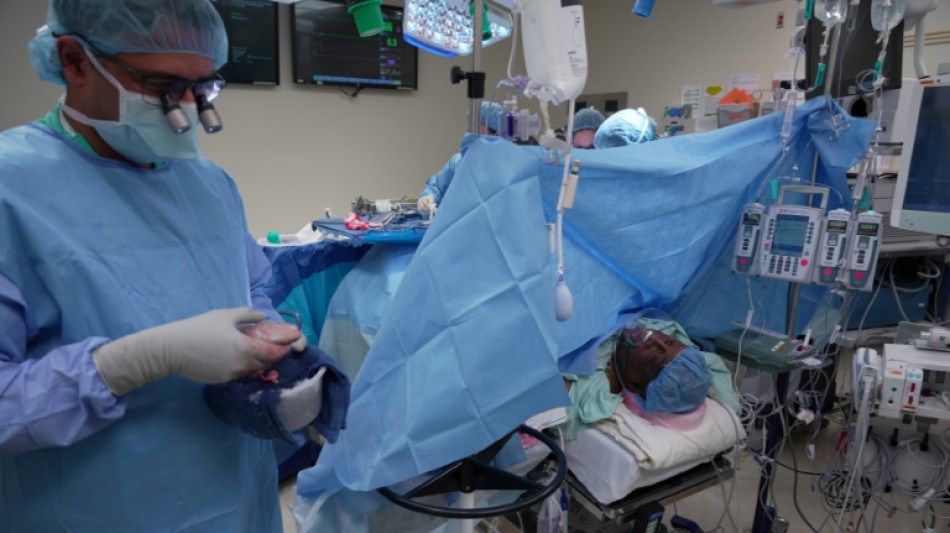
-
 Elusive wild cat feared extinct rediscovered in Thailand
Elusive wild cat feared extinct rediscovered in Thailand
-
Japan govt approves record budget, including for defence

-
 Seoul to ease access to North Korean newspaper
Seoul to ease access to North Korean newspaper
-
History-maker Tongue wants more of the same from England attack

-
 Australia lead England by 46 after 20 wickets fall on crazy day at MCG
Australia lead England by 46 after 20 wickets fall on crazy day at MCG
-
Asia markets edge up as precious metals surge

-
 Twenty wickets fall on day one as Australia gain edge in 4th Ashes Test
Twenty wickets fall on day one as Australia gain edge in 4th Ashes Test
-
'No winner': Kosovo snap poll unlikely to end damaging deadlock

-
 Culture being strangled by Kosovo's political crisis
Culture being strangled by Kosovo's political crisis
-
Main contenders in Kosovo's snap election
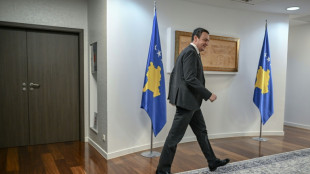
-
 Australia all out for 152 as England take charge of 4th Ashes Test
Australia all out for 152 as England take charge of 4th Ashes Test
-
Boys recount 'torment' at hands of armed rebels in DR Congo

-
 Inside Chernobyl, Ukraine scrambles to repair radiation shield
Inside Chernobyl, Ukraine scrambles to repair radiation shield
-
Bondi victims honoured as Sydney-Hobart race sets sail

-
 North Korea's Kim orders factories to make more missiles in 2026
North Korea's Kim orders factories to make more missiles in 2026
-
Palladino's Atalanta on the up as Serie A leaders Inter visit

-
 Hooked on the claw: how crane games conquered Japan's arcades
Hooked on the claw: how crane games conquered Japan's arcades
-
Shanghai's elderly waltz back to the past at lunchtime dance halls

-
 Japan govt approves record 122 trillion yen budget
Japan govt approves record 122 trillion yen budget
-
US launches Christmas Day strikes on IS targets in Nigeria

-
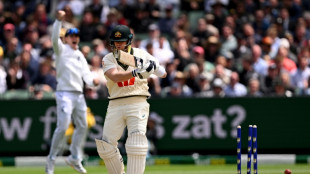 Australia reeling on 72-4 at lunch as England strike in 4th Ashes Test
Australia reeling on 72-4 at lunch as England strike in 4th Ashes Test
-
Too hot to handle? Searing heat looming over 2026 World Cup

-
 Packers clinch NFL playoff spot as Lions lose to Vikings
Packers clinch NFL playoff spot as Lions lose to Vikings
-
Guinea's presidential candidates hold final rallies before Sunday's vote

-
 BondwithPet Expands B2B Offering with Custom Pet Memorial Product
BondwithPet Expands B2B Offering with Custom Pet Memorial Product
-
Best Crypto IRA Companies (Rankings Released)

-
 Eon Prime Intelligent Alliance Office Unveils New Brand Identity and Completes Website Upgrade
Eon Prime Intelligent Alliance Office Unveils New Brand Identity and Completes Website Upgrade
-
Villa face Chelsea test as Premier League title race heats up

-
 Spurs extend domination of NBA-best Thunder
Spurs extend domination of NBA-best Thunder
-
Malaysia's Najib to face verdict in mega 1MDB graft trial
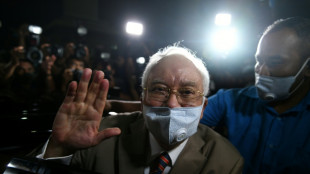
-
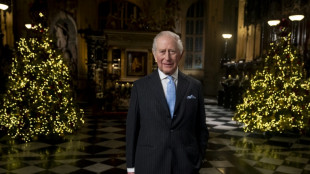 King Charles calls for 'reconciliation' in Christmas speech
King Charles calls for 'reconciliation' in Christmas speech
-
Brazil's jailed ex-president Bolsonaro undergoes 'successful' surgery

-
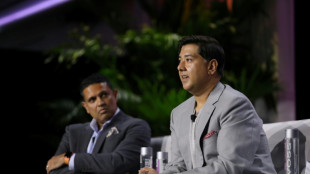 UK tech campaigner sues Trump administration over US sanctions
UK tech campaigner sues Trump administration over US sanctions
-
New Anglican leader says immigration debate dividing UK

-
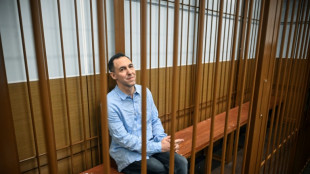 Russia says made 'proposal' to France over jailed researcher
Russia says made 'proposal' to France over jailed researcher
-
Bangladesh PM hopeful Rahman returns from exile ahead of polls

-
 Police suspect suicide bomber behind Nigeria's deadly mosque blast
Police suspect suicide bomber behind Nigeria's deadly mosque blast
-
AFCON organisers allowing fans in for free to fill empty stands: source

-
 Mali coach Saintfiet hits out at European clubs, FIFA over AFCON changes
Mali coach Saintfiet hits out at European clubs, FIFA over AFCON changes
-
Last Christians gather in ruins of Turkey's quake-hit Antakya

-
 Pope Leo condemns 'open wounds' of war in first Christmas homily
Pope Leo condemns 'open wounds' of war in first Christmas homily
-
Mogadishu votes in first local elections in decades under tight security
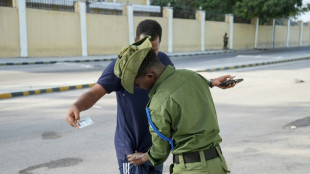
-
 'Starting anew': Indonesians in disaster-struck Sumatra hold Christmas mass
'Starting anew': Indonesians in disaster-struck Sumatra hold Christmas mass
-
Cambodian PM's wife attends funerals of soldiers killed in Thai border clashes

-
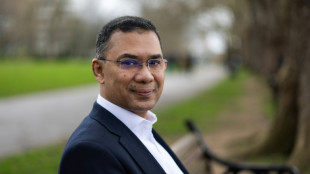 Prime minister hopeful Tarique Rahman arrives in Bangladesh: party
Prime minister hopeful Tarique Rahman arrives in Bangladesh: party
-
Pacific archipelago Palau agrees to take migrants from US
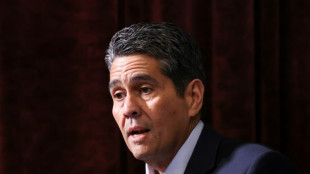
-
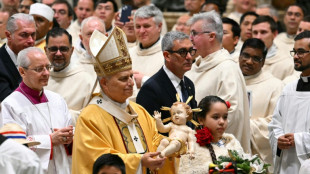 Pope Leo expected to call for peace during first Christmas blessing
Pope Leo expected to call for peace during first Christmas blessing
-
Australia opts for all-pace attack in fourth Ashes Test
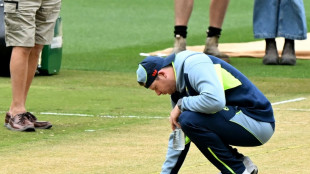
-
 'We hold onto one another and keep fighting,' says wife of jailed Istanbul mayor
'We hold onto one another and keep fighting,' says wife of jailed Istanbul mayor
-
North Korea's Kim visits nuclear subs as Putin hails 'invincible' bond
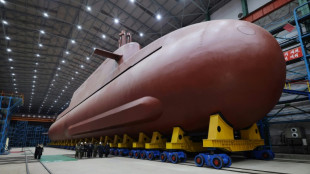

Could awake kidney transplants become the norm?
"I saw everything," says 74-year-old Harry Stackhouse from Illinois, who was awake during his recent kidney transplant. He felt no pain as he chatted with doctors, examined the donor organ, and watched the surgical team staple him back up.
Stackhouse was discharged just 36 hours after the procedure at Northwestern Medicine, which aims to make transplants without risky general anesthesia commonplace.
Performed in a little over an hour on July 15, this was the second such surgery led by Satish Nadig, director of the Chicago-based hospital system's Comprehensive Transplant Center. He has since carried out a third.
"We're at an inflection point in transplantation today in being able to use the technologies that we have around us to really push us into this next era," Nadig told AFP.
It may sound off-putting or even scary, but the medical benefits of using a spinal anesthetic for kidney transplants -- similar to what's already done during cesarean sections -- are well established.
General anesthesia requires intubation, which can damage the vocal cords, delay bowel function, and cause "brain fog" that persists, particularly in older patients.
But while the medical literature mentions a smattering of awake kidney transplants going back decades across several countries, it's never been fully embraced.
This year marks only the 70th anniversary of the first successful live donor human kidney transplant, Nadig points out, and there's been reluctance to challenge the status quo.
"However, now the outcomes for kidney transplantation are fantastic and it's time that we question the paradigms that we have historically stuck to."
- Life restoring -
Stackhouse, a father-of-six who worked as a painter and decorator, says he first fell ill in December 2019 with flu-like symptoms, which worsened to the point he could barely walk.
A few months later he ended up in the emergency room, where he learned he not only had Covid-19 during the most dangerous early phase of the pandemic, but one of his kidneys had failed and the other was functioning at only two percent.
He resigned himself to thrice-weekly dialysis sessions, but as the ports began failing and his veins started closing up, his daughter Trewaunda urged him to consider a transplant, offering to get herself tested as a donor.
Initially reluctant to "intrude" on his children's lives, Stackhouse finally agreed.
After meeting with Nadig and learning about the AWAKE Kidney Program, which uses accelerated surgery without general anesthesia in kidney transplantation, he decided to go ahead with the procedure.
"Believe it or not, I didn't feel a thing -- it was amazing," Stackhouse told AFP.
He conversed with the medical team during the operation, and when the doctor offered to show him the donor kidney, he didn't hesitate. "Man, I didn't think a kidney is that big!" he exclaimed.
Given his age, Stackhouse was discharged 36 hours later -- slightly longer than the first awake patient Nadig operated on in May, who left after 24 hours, but still much shorter than the US average of five to seven days for sedated patients.
- Who will be eligible? -
Nadig credited the success to advances like targeted anesthetic blocks in the abdomen and spine, avoiding opioid narcotics, and encouraging early eating, which had already helped Northwestern Medicine reduce patients' average length-of-stay even before the AWAKE program began.
Stackhouse has mounted an excellent recovery, reporting that he's walking, mowing his lawn, and preparing his boat for an overdue fishing trip. His recovery was even faster than 45-year-old Trewaunda's, who was under general anesthesia.
"It's just a gift that you can give someone, just to think where he was spiraling to, it wasn't looking good," the preschool teacher told AFP. "You're restoring somebody's life."
Christopher Sonnenday, director of the Transplant Center at University of Michigan Health, praised the Northwestern Medicine team for their "important innovation in our field."
"Limiting exposure to general anesthesia has been shown to accelerate recovery across all surgical disciplines, and I am certain that benefit may be realized in kidney transplantation as well," he told AFP.
But experience will determine how broadly applicable such procedures will become, including whether they will extend to patients with underlying conditions such as obesity or cardiac disease.
F.Schneider--AMWN


